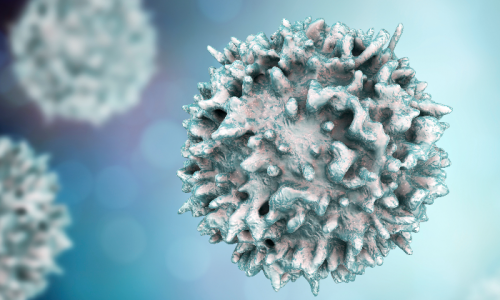- MS develops from a complex interaction of genetic and environmental risk factors unique to each individual.
- Researchers funded by MS Australia have investigated the interaction between gender, sex hormones, genetics, and the Epstein-Barr virus (EBV) in immune cells.
- The researchers found that the female hormone, estrogen, may influence and interact with MS risk genes and lead to changes in response to EBV infections.
MS arises due to a complex interaction between genetic and environmental factors. There is no single cause of MS but rather several interacting risk factors. A risk factor is anything that a person experiences that alone is not sufficient to cause MS, but potentially, can increase the probability of the development of MS.
Causes of MS
While it is common to read that the causes of MS are unknown, many risk factors have been identified, including infection with EBV, lack of sun exposure, gender, smoking, obesity, and several others. For more information on the risks of developing MS, click here.
What did the researchers investigate?
A lot is known about the risk factors at the population level, but for everyone, the risk factors may be a unique combination and may result from unique interactions with different risk factors. Here, Australian researchers funded by MS Australia have been investigating the interaction between gender, sex hormones, genetics and EBV in immune cells to try and piece together how some of these risk factors interact.
First, the researchers used information from 1,000 genomes (the collection of genes that make up one individual) and looked at the difference in the genes between males and females, especially focusing on any genes known to interact with EBV. They then determined which immune cells were infected with EBV in the presence or absence of estrogen (a hormone found in higher concentrations in females) and whether some of the levels of these genes changed.
What did the researchers find?
The researchers discovered that the amount of protein (or gene product) produced by these genes did change in the presence of estrogen. This then led to changes in the way the immune cells grew. It also affected the amount of EBV DNA in these cells. This suggests that female hormones might influence and interact with MS risk genes and may lead to more EBV being produced in female cells, leading to an increased risk of developing MS.
This research may explain some of the contributions of each risk factor and how they might be interacting to add to the overall risk that someone might develop MS. This is a complicated area of study, but it is vital that we fully understand how MS develops so that we can ultimately help reduce the number of people diagnosed.






